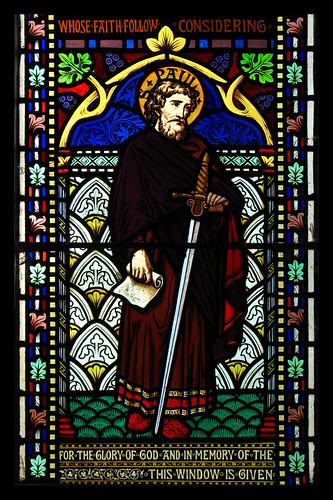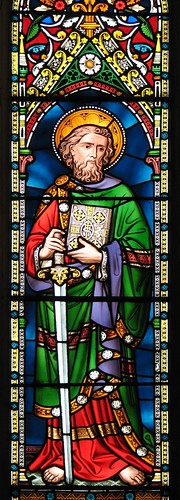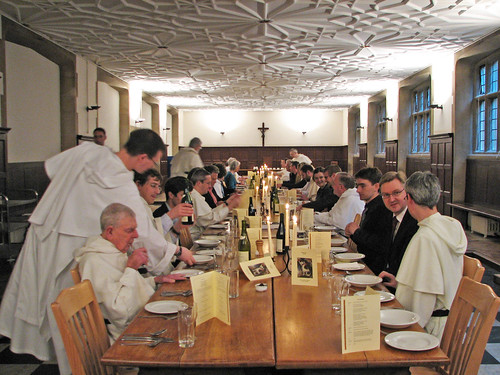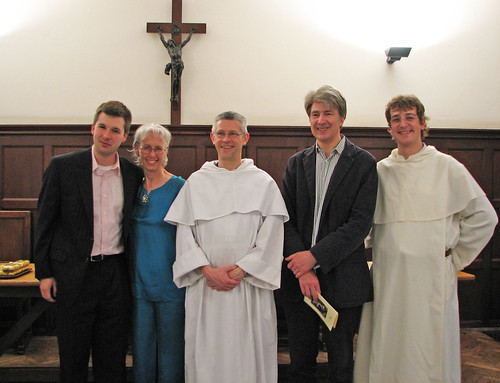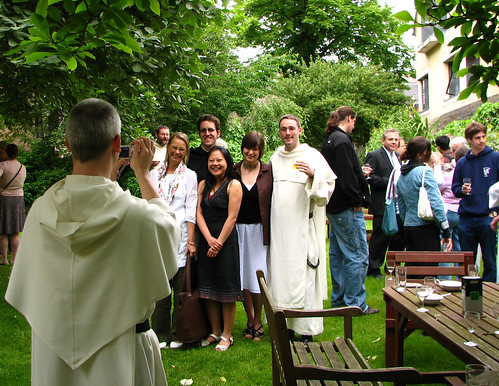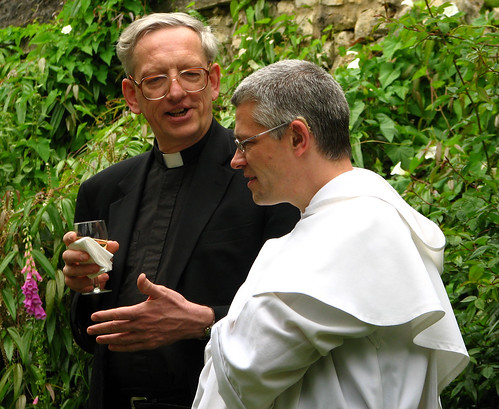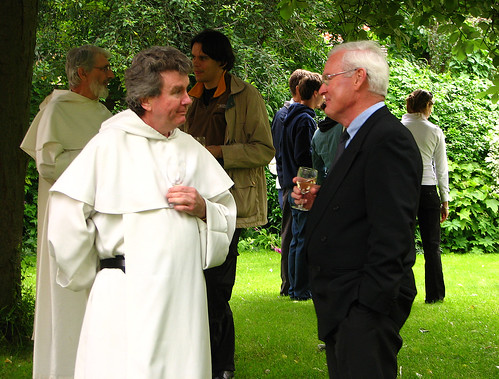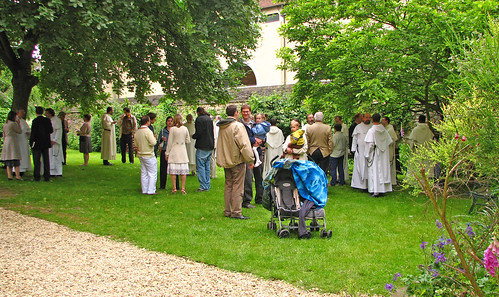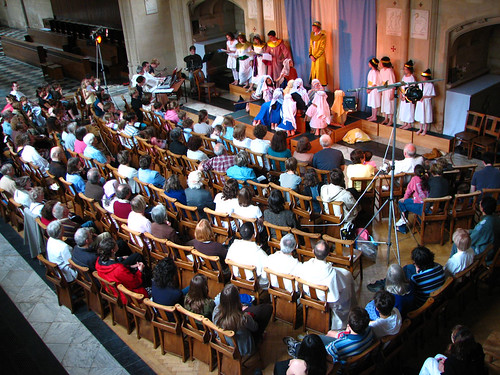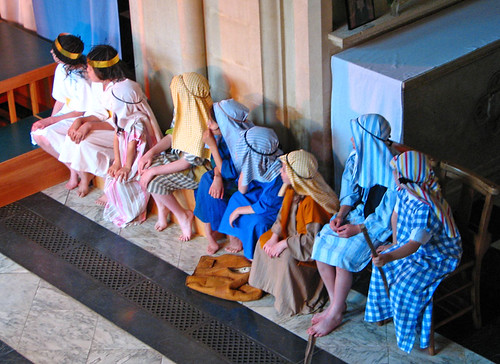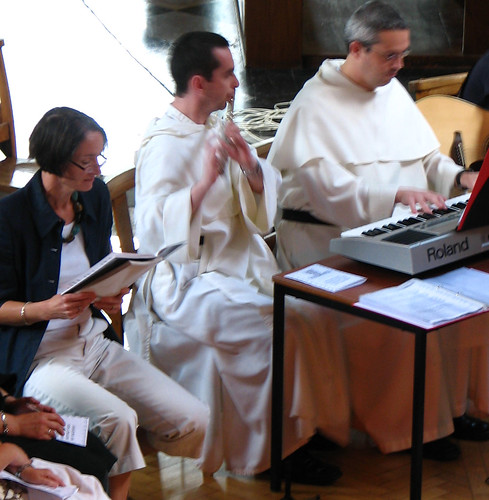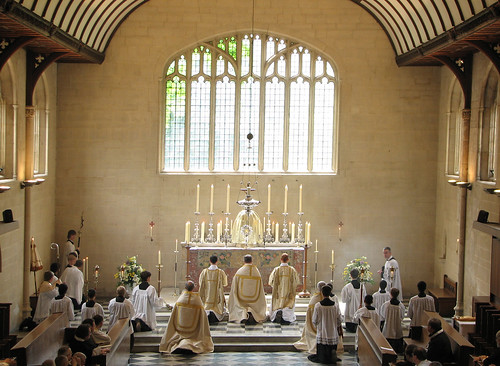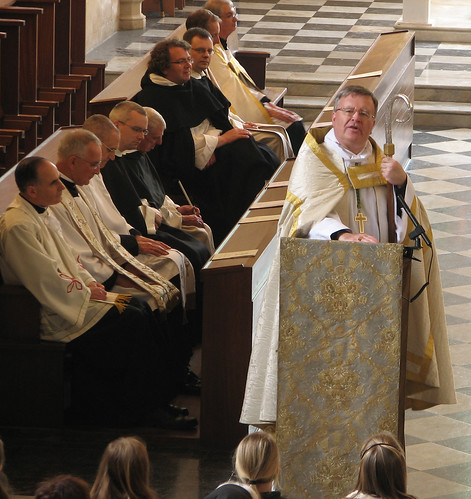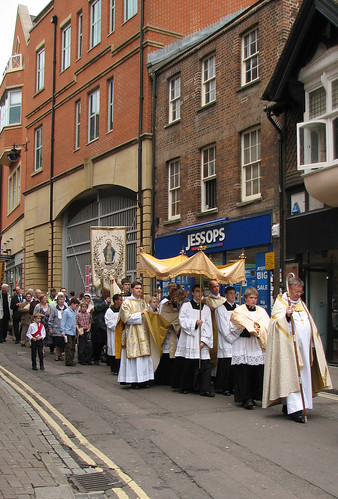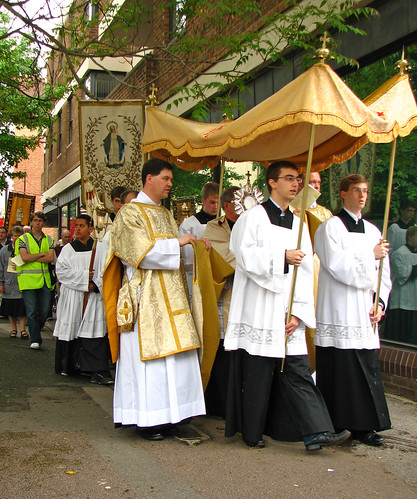
In antiquity the imagery of the body was used in a figurative and corporate sense in mythology and for groups of people. Thus the term 'body' referred to the whole group and the term 'limb' to an individual within the group. St. Paul used this already existing metaphorical language and applied it to a reality that took the language beyond mere metaphor. For when St. Paul refers to the Body of Christ, in Ephesians 5:30 for example, "because we are members of his body", he is not simply referring to Christians as individual members linked together as the limbs of a body are linked together but is referring to a mystical reality. In baptism Christians are united into one body not only as the members of an organisation are joined together by their common allegiance - although this is also true - but principally by the mystical character that the sacrament confers.
St. Paul also uses the Greek word for body, soma, to mean a person, a human being. For Paul, in contrast to those who would deny the value of the body (such as the gnostics who were to come later) human beings are a union of soul and body, both of which were created by God and are therefore both good and holy. Even in the realm of the spirit, or soul, human existence is a bodily existence. However, Paul also uses the word body to speak of sins that are bound up with our physicality. Certain sins come about when one gives in to the ways of the flesh rather than following the ways of the spirit, spiritual ways. In using the term "sins of the flesh" St. Paul is not claiming that the body is inherently bad but only that there are certain sins which those who place their physicality above their spirituality will be liable to commit.
Indeed Paul makes clear the exalted place given to the body in the Christian faith by his focus on the bodily resurrection from the dead. We will not be ourselves again, even if we are in heaven, until we are re-united with our bodies at the general resurrection. The body is the place where the Holy Spirit dwells within us as baptised Christians: "do you not know that your body is a temple of the Holy Spirit within you which you have from God? ... So glorify God in your body"(1 Cor. 6:15, 19f).
